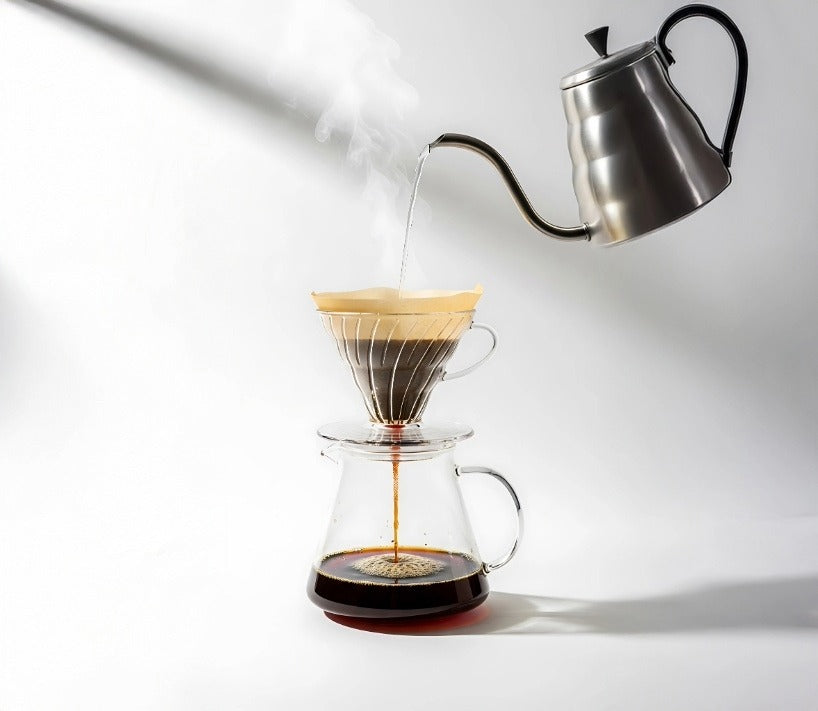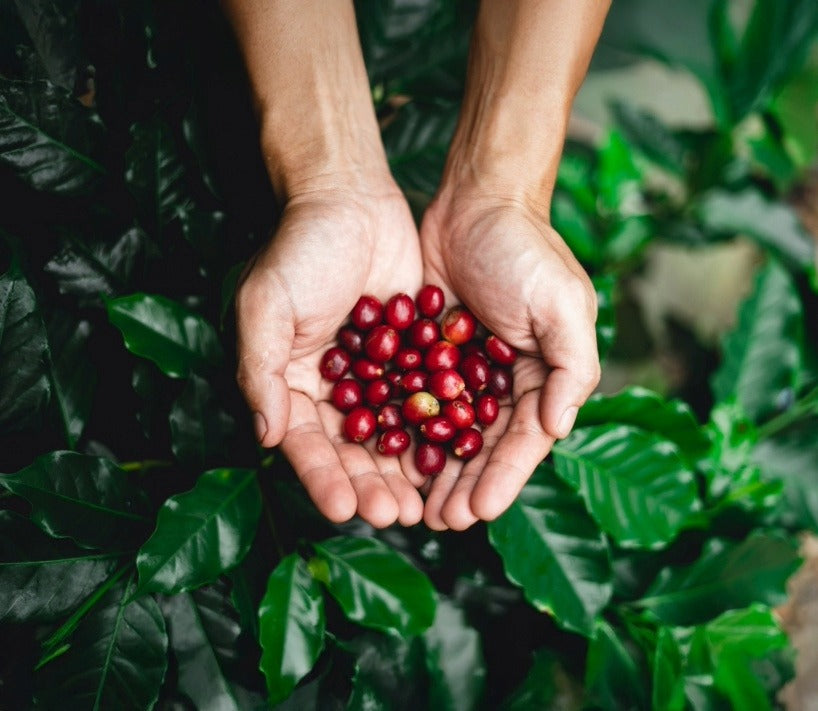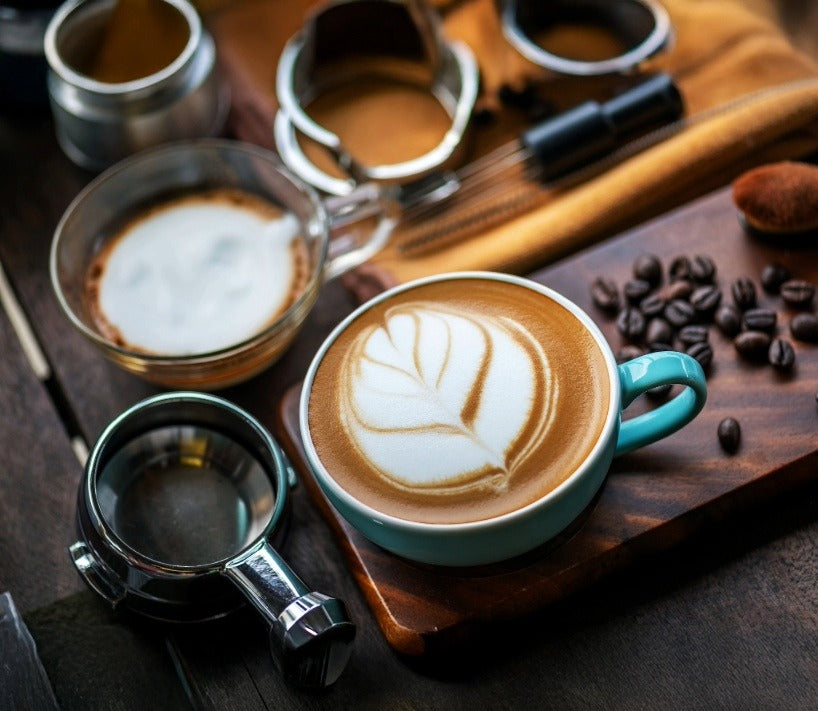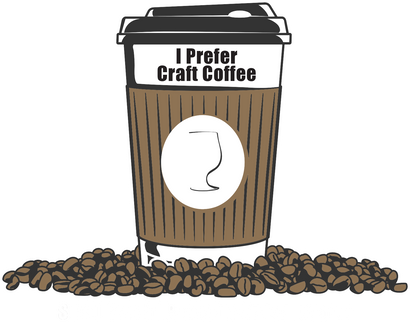Freshest Specialty Coffee Online: Why Taste Is So Subjective (and How to Aim Your Taste on Purpose)
August 23, 2025 7 min read
Freshest Specialty Coffee Online: Why Taste Is So Subjective (and How to Aim Your Taste on Purpose)
One time my tongue said, “Mmm, strawberry jelly!” and my friend’s tongue said, “Nope, chocolate brownie.” We were sipping the same cup. Did the cup lie? Nope. Our mouths are just… dramatic. This guide explains why taste is so different human-to-human, and exactly how to figure out what you love (and what to avoid) so your mornings feel like high-five confetti. Because if you want the Freshest Specialty Coffee Online, taste is the boss—and we’re going to give the boss a helpful map.
You’ll get simple steps, side-by-side comparing, and a tiny “science, but make it snackable” lesson.
Why coffee taste is so “Hey, my tongue voted different”
Let’s tell a quick story. Imagine your tongue is a classroom. Every kid (your taste buds) has a different favorite: sweet, sour, salty, bitter, umami, and the nose kids (aroma buddies) who smell everything. Coffee rings the school bell for all those kids at once. Now here’s why your “class” doesn’t grade the same as mine:
-
Biology & nose power
Some people have extra-spicy bitter detectors (thanks, genetics), so dark roasts might taste “whoa, smoky” faster. Others are super smellers, so they catch blueberry or jasmine fireworks I miss. Your nose does most of the tasting—your tongue is the backup dancer. -
Memory & mood
Your brain keeps a flavor diary. A chocolate-nut cup might feel like grandma’s cookies, so you smile bigger. A bright lemony cup might remind someone else of a sour experience, so they frown. Same beans, different storybooks. -
Brew variables
Grind size, water temperature, brew time, ratio—all these are kitchen knobs. Turn them a little and the cup says, “Hi, I’m brighter!” or “Howdy, I’m deeper!” That’s why your best craft coffee at home can swing from “sparkly” to “sleepy” based on tiny tweaks. -
Bean variables
Origin, altitude, variety, roast level, and processing method are like the coffee’s passport stamps. Each stamp shouts a different flavor mood: washed (clean), natural (fruity), honey (rounded sweetness), anaerobic (tropical party), wet-hulled (earthy, deep). More on that in a sec. -
Freshness
Freshly roasted coffee acts like a new jar of peanut butter—easy to love. Old coffee is… that jar from last summer. If you’re chasing the Freshest Specialty Coffee Online, the roast date matters way more than a “best by.” Fresh = clearer notes, sweeter center, happier sips. -
Environment
Your water, your mug, your kitchen air—these tiny goblins nudge flavor. (Pro tip: filtered water = fewer goblins.)
So no, your cup isn’t lying. Your taste just wears its own favorite sweater.
The Big Decoder: How to aim taste on purpose
Taste isn’t random; it just needs a decoder ring. Here’s the quick “what changes what”:
-
Roast level:
-
Light = more fruit/floral, higher sparkle (acidity), lighter body
-
Medium = caramel/chocolate, balanced sparkle, medium body
-
Dark = roasty/cocoa/smoke, low sparkle, heavy body
-
-
Processing method:
-
Washed: clean, tidy notes (apple, citrus, tea)
-
Natural: jammy fruit (blueberry, strawberry, tropical)
-
Honey: rounded sweetness (caramel, stone fruit)
-
Anaerobic: big aromatics, tropical/wine-like (pineapple, spice, cola)
-
Wet-hulled: earthy/deep (cocoa, cedar, spice)
-
-
Brew method pairing (friendly suggestions):
-
Drip/Pourover: light–medium washed or honey (clarity + sweetness)
-
French press: medium–dark (chocolatey, round body)
-
Espresso: medium to medium-dark (classic nuts/chocolate) or light-medium natural if you enjoy fruit-forward shots and dialing in
-
Iced/Flash: light–medium washed/honey to keep it bright over ice
-
Taste Translator: Quick Comparison Table
| If you like… | Try these roast lanes | Try these processes | Brew buddy | Flavor examples | Maybe avoid… |
|---|---|---|---|---|---|
| Bright fruit & tea-like clarity | Light | Washed | Pourover/Drip | Citrus, florals, peach | Very dark roasts (can mute sparkle) |
| Blueberry jam & candy vibes | Light–Medium | Natural | Pourover/Espresso (modern) | Blueberry, strawberry, grape candy | Extra-washed + super light if you want max fruit |
| Dessert-y comfort | Medium | Honey | Drip/French press | Caramel, nougat, red apple | Ultra-light if acidity bothers you |
| Deep, earthy, cozy | Medium–Dark | Wet-hulled | French press/Drip | Cocoa, cedar, spice | Super-fruity anaerobics if that feels “wild” |
| Classic café “coffee-coffee” | Medium–Dark | Washed or Honey | Drip/Espresso | Chocolate, toasted nuts | Very light, lemony profiles |
| Tropical & adventurous | Light–Medium | Anaerobic | Pourover/Espresso (dial-in) | Pineapple, cola, spice | If you dislike “funk,” start small |
Use this as your treasure map when you order coffee online from top specialty coffee online roasters or try a best coffee bean delivery option that's local.
The “Aim Your Taste” Starter Kit
This is the part where we take your taste on a field trip (no permission slip needed).
Step 1 — Pick a “lane” to test first
Say out loud what you think you like: “chocolatey and cozy,” or “sparkly and fruity,” or “bold and toasty.” That decides your starting roast lane (medium, light, or medium–dark).
Step 2 — Choose a process to match the lane
-
Cozy chocolate? Honey or washed.
-
Sparkly fruit? Washed or natural.
-
Bold/earthy? Wet-hulled or washed medium-dark.
-
Adventure fruit-bomb? Natural or anaerobic.
Step 3 — Do a tiny side-by-side
Grab two coffees that differ in one thing (same roast level, different process is easiest). Keep everything else the same. Taste like a scientist with a smile.
Step 4 — Use the “3-sip test”
-
Sip 1: What hits first (fruit, chocolate, smoke, lemon)?
-
Sip 2: What’s the body (light juice vs hot cocoa)?
-
Sip 3: What’s the aftertaste (clean, sweet, roasty, tangy)?
Write five words you notice. Yes, even “reminds me of pancakes” counts.
Step 5 — Fix the three big “oops”
-
Sour/Sharp? Grind finer, brew hotter/longer, or try one notch darker roast / washed process.
-
Bitter/Ashy? Grind coarser, brew cooler/shorter, or try one notch lighter roast.
-
Flat/Dull? Try natural or honey, or one notch lighter roast for more sparkle.
Step 6 — Log it like a mini coach
Make a tiny chart: Date, Coffee, Roast, Process, Method, Grind, Notes, Happy Mug Score (0–10). Patterns will pop. You’ll spot your favorites fast.
Step 7 — Ask for personal guidance (copy-paste)
“Hey! I like [fruity / chocolatey / smoky] flavors. I brew [pourover / drip / French press / espresso]. I prefer [light / medium / dark] roasts. Do you have something [washed / natural / honey / anaerobic / wet-hulled] with a fresh roast date this week? Bonus if it has [strawberry / caramel / dark chocolate].”
No buying pressure—just friendly humans pointing you to a bullseye cup. That’s how you turn the freshest craft coffee online into a consistent morning win.
The 60-Second Product Page Audit (so you don’t play flavor roulette)
-
Freshness: Roast date shown (not just “best by”).
-
Clarity: Roast level clearly labeled (light/medium/dark).
-
Transparency: Origin, process, and believable notes (cocoa, almond, cherry).
-
Style Match: The lane matches your taste goal from the table.
-
Shipping speed: Freshness window matters—especially with best coffee bean delivery or when you filter for best coffee online free shipping. Fast is friendlier to flavor.
-
Contact: Clear way to ask questions (chat, email, DM). Conversation = better cups.
Mini Glossary (little words, big help)
-
Acidity (pleasant): Sparkle/liveliness; not the same as stomach acid.
-
Body: How the coffee feels (light like tea vs thick like cocoa).
-
Finish: The flavor after you swallow (clean, sweet, roasty).
-
Solubility: How easily flavors extract. Dark > Medium > Light.
-
De-gassing: Beans releasing CO₂ after roast; that’s why light roasts often need a few days of rest.
Fresh On-Page Helpers (bookmark these!)
Taste-Lane Shortcuts:
-
Say “chocolatey” → Medium + Honey/Washed
-
Say “fruity” → Light + Washed/Natural
-
Say “smoky/strong” → Medium–Dark + Washed/Wet-hulled
Brew-Method Shortcuts:
-
“Set it & forget it” drip → Washed/Honey medium
-
“I like tinkering” pourover → Light/Washed or Natural
-
“Thick and cozy” French press → Medium–Dark/Wet-hulled
-
“Tiny cup, big flavor” espresso → Medium–Dark classic, or Light–Medium Natural for fruit lovers (dial carefully)
Search Smarts:
When you hunt the Freshest Specialty Coffee Online or the top specialty coffee online options, look for credible details (roast date, process, realistic notes) instead of shiny words. That’s the difference between best coffee to buy online and “mystery beans from somewhere.”
FAQ
Q1: Why does my friend taste blueberries while I taste chocolate in the same cup?
Your biology, smell sensitivity, flavor memories, and brew variables all tilt your experience. Coffee is a whole choir; each of us hears different singers louder.
Q2: What should I try if bright, lemony coffees bother my stomach?
Slide a notch toward medium roasts and try honey or washed processes. Grind a bit coarser and keep water around ~93°C/200°F. Many folks find these settings gentler.
Q3: How do I keep coffee tasting fresh after I order coffee online?
Choose beans with a clear roast date. Store sealed in a cool, dry, dark place. Use the one-way valve bag. Grind right before brewing. Aim to finish the bag within 2–4 weeks of roast.
Q4: Is darker coffee always more bitter?
Not always, but darker roasts push caramelization and roasty notes, which many palates read as more bitter. Balanced medium often lands the sweet spot for chocolate-forward comfort.
Q5: How do processing methods change flavor the most?
Washed = clean/bright; Natural = fruit/jam; Honey = rounded sweet; Anaerobic = tropical/wine-like; Wet-hulled = earthy/deep. Match the method to your flavor goal.
Q6: What’s the simplest way to find my lane without wasting money?
Do a 2-coffee showdown: same roast level, different process. Keep water, grind, and recipe identical. Take three sips, write five words, pick a winner. Repeat with a new challenger next week.
Comparison Table: Subjective Taste — What to Choose vs What to Skip
| Your preference | Pick this (first) | Maybe skip (for now) | Why this helps |
|---|---|---|---|
| “I want sweet and cozy.” | Medium roast, Honey or Washed process | Super light lemony lots | Medium + honey/washed leans caramel/nougat and gentle sparkle |
| “I want fruit fireworks.” | Light roast, Natural or Washed | Very dark smoky blends | Light + natural keeps berries/tropical popping |
| “I want bold and toasty.” | Medium–Dark roast, Washed or Wet-hulled | Very light tea-like cups | Medium–dark boosts body and roast-forward cocoa |
| “I want clean and crisp.” | Light roast, Washed | Funky anaerobics (start later) | Washed emphasizes clarity and tidy finish |
| “I want adventurous tropical.” | Light–Medium, Anaerobic | If you dislike funk, avoid at first | Anaerobic = pineapple/cola vibes; start small if unsure |
Your Next 5-Minute Move
-
Say your lane out loud (fruity / chocolatey / smoky).
-
Pick a matching process from the table.
-
Run a tiny side-by-side (same roast, different process).
-
Fix sour vs bitter with grind/time/water tweaks.
-
Keep your Happy Mug Score. Patterns = power.
Finding the freshest specialty coffee online isn’t about buying everything—it’s about learning you. Once you see your pattern, the web stops being a maze and becomes a menu.
PS: If you want help translating “I like cozy dessert vibes” into exact roast/process picks for your brewer and your water, just send me the copy-paste message from Step 7 with as much detail as you can. No purchase needed—just friendly coffee nerd chat so your next cup says “wow,” not “why.”
Also in Best Coffee To Buy Online Education

Biggest Mistake With Pourover Coffee: It's Your Beans
January 02, 2026 3 min read
Learn how to brew the best pourover coffee at home with the best tasting craft coffee online. Remember, the best coffee to drink at home starts with the freshest craft coffee online, not the bargain bin beans at your local supermarket.

Specialty Roast Coffee Beans Online: What’s the Deal, Really?
January 01, 2026 4 min read
You'll learn what specialty roast coffee beans online actually means, and why it translates to the best tasting craft coffee at home.

High-Score Coffee Beans Online: Why 85+ Points Actually Matter
December 31, 2025 3 min read
Learn why the best tasting craft coffee online is high-scoring specialty coffee that tastes better and how to choose the right beans online. Order coffee online from a roaster you trust.
